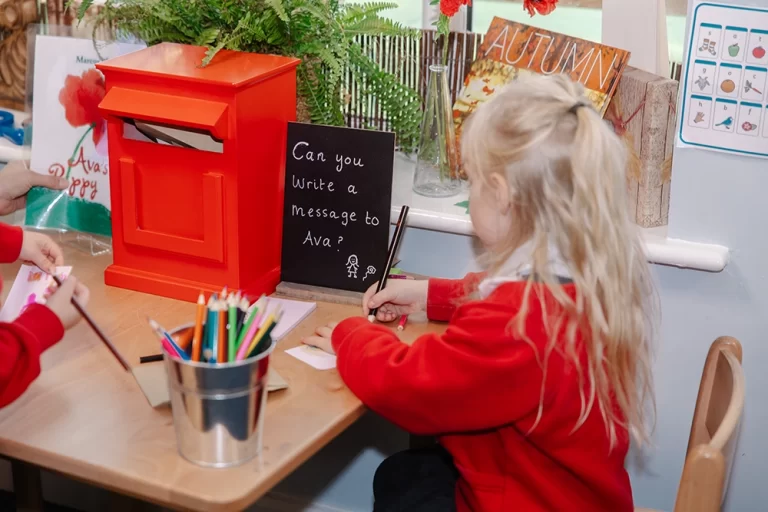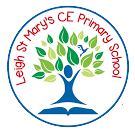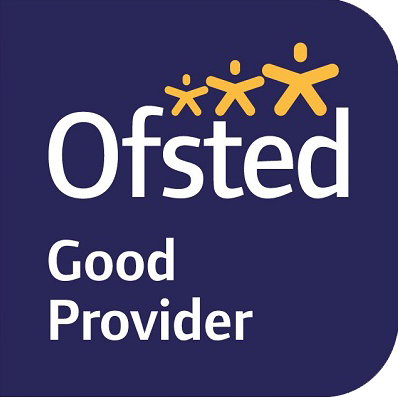English - Writing
Intent, Implementation and Impact
English Writing Intent Statement
At Leigh St Mary’s we strive to create writers who craft sentences with accuracy, fluency and flair. We understand that there are essential characteristics that writers demonstrate. The intent of the English writing curriculum from Early Years to Year 6 is to build these characteristics within our pupils.
The essential characteristics of writers are:
- The ability to write fluently and with interesting detail on a number of topics throughout the curriculum.
- A vivid imagination which makes readers engage with and enjoy their writing.
- A highly developed vocabulary and an excellent knowledge of grammatical accuracy and writing techniques to extend details and description.
- Well-organised and structured writing, which includes a variety of sentence structures.
- An impressive knowledge and understanding of other artists, craft makers and designers.
- Excellent transcription skills that ensure writing is well-presented, neat, accurately punctuated and spelled correctly.
- A love of writing and an appreciation of its educational, cultural and entertainment values.
(The Essentials Curriculum, Chris Quigley Education)
English Writing Curriculum Implementation
At Leigh St Mary’s we use a bespoke Writing Pathway created by and for the school. This is a research-based scheme written using Sounds Write, the principles of The Writing Revolution by Judith C. Hochman and Natalie Wexter, The Write Stuff by Jane Considine, Talk for Writing by Pie Corbett, Closing the Writing Gap by Alex Quigley and ongoing research by the Education Endowment Foundation. This is complemented by our English writing skills progression map; our English writing curriculum is designed to teach accuracy in terms of phonic knowledge via Sounds Write, to teach accuracy in spelling and grammar, to teach the skills to write confidently and fluently and to provide a diet of high-quality books and opportunities that inspire pupils to write with imagination and flair.
The writing progression of skills map is designed with five strands that run throughout. These are:
- Sounds Write phonics and further spelling skills
- Accuracy of grammar, punctuation and knowledge of writing terminology
- Transcription, handwriting and presentation
- Writing with an awareness of audience, purpose, structure and register
- Planning, writing, proof-reading, editing and performing
The English Writing Pathway and writing progression of skills at Leigh St Mary’s is sequential, allowing children to build their skills and knowledge, applying them to a range of writing outcomes.
A variety of writing genres are woven throughout the teaching sequence. Sentence crafting skills are embedded by re-visiting key writing skills over time within and between year groups. This allows pupils to revise and build on their previous learning. The types of writing outcomes are (but not limited to!):
- Narrative; story, diary entry, letter, alternative viewpoints/perspectives
- Non-fiction; labels, lists, instructions, fact files, persuasive writing
- Poetry; riddles, verse, haiku, shape poems
The English writing progression map shows the skills taught within each year group and how these skills develop to ensure that attainment targets are securely met by the end of each key stage. The craft and complexities of writing, with independent outcomes, are robustly embedded in discrete writing lessons and taught in cross-curricular subjects. High-quality texts are used and shared every day in every year group in school. This immersion in books increases pupil knowledge, vocabulary and exposes them to excellent author models. Pupils are encouraged to evaluate their work and to give positive peer feedback from the earliest year groups. We aim to embed a feeling of success and being a valued author from the earliest stage. Writing is celebrated across school via working walls, displays and opportunities to share writing with different members of the school community.
At Leigh St Mary’s, writing is taught within both a discrete Sounds Write and English lesson every day. The ‘Books to Inspire’ document provides teachers with a core book spine for reading and writing. Pupils are encouraged to write for a ‘real’ audience and staff contact external sources such as museums, publishers or audiences within the local community to share pupils’ writing outcomes. Classes often ‘showcase’ their writing to parents and families in organised events.
English Writing Curriculum Impact
The impact our bespoke Writing Pathway has is that pupils learn to write from their earliest stages in school. Through systematic and thorough teaching, pupils develop their knowledge of the complex elements that make a competent writer; encoding via Sounds Write, handwriting, grammatical expertise, composition and creativity. Our high-quality core book spine ensures pupils are exposed to a daily diet of literature and excellent writing models. Staff and learners are clear of the high expectations Leigh St. Mary’s has for our budding authors!
Assessment
- Phonic knowledge is assessed in our earliest writers on an ongoing basis during Sounds Write and discrete writing sessions.
- Ongoing teacher assessments are made against the Development Matters/Early Years Framework in reception for early writing skills and fine motor development,
- Ongoing teacher assessments are made against the National Curriculum for Years 1-6.
- Progress is tracked carefully with intervention or challenge put in place in a timely manner.
- Assessment of writing is reported to parents in mid-year reports, parents’ evenings and the end of year school report.
- Writing is monitored regularly by the English Subject Lead.
Whole School Overview - Books to Inspire, Core Book Spine
LSM Text Map English Y6_Writing Outcomes
LSM Text Map English Y5_Writing Outcomes
LSM Text Map English Y4_Writing Outcomes
LSM Text Map English Y3_Writing Outcomes
LSM Text Map English Y2_Writing Outcomes
LSM Text Map English Y1_Writing Outcomes
LSM Text Map English EY_Writing Outcomes
Writing Progression Map_LSM_2024


